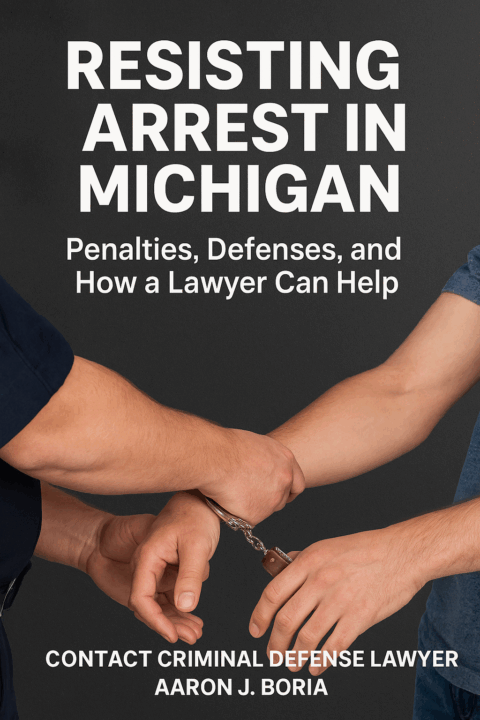
What is a preliminary exam?
If you are charged with a felony in Michigan, a preliminary examination is a probable cause hearing, where it is determined if a crime was probably committed and the accused probably committed it.
All criminal cases, regardless if they are misdemeanors or felonies, start in district court. Your preliminary examination will be held in the district court that has jurisdiction where the crime was allegedly committed.
If you have been charged with a crime, call Michigan criminal lawyer, Aaron J. Boria (734) 453-7806.
When is my preliminary exam?
Under Michigan law, as a defendant, you are entitled to a preliminary examination within 21 days of arraignment, MCR 6.104(4). For good cause you do have the option of waiving the preliminary examination 21-day period and holding the examination later under court rule MCR 6.110(B)(1). One good reason for good cause is so that your lawyer has enough time to prepare.
What is the purpose of a preliminary examination?
The legal theory of a preliminary examination is that they weed out the bad cases that were over charged or should have never been charged.
In practice, the defense may hold a preliminary examination in hopes of getting a charge dismissed. Another reason to hold the examination would be to lock witnesses into their sworn testimony so that they cannot change their story later.
Can I wave a preliminary exam?
Yes, but the prosecuting attorney has to agree to the waiver.
The reason a defense lawyer might agree to waive the exam is if there is a possibility additional charges could be added by the testimony that will be presented. Another reason to waive the exam is if the prosecutor threatens that no reductions will be offered and that is what you are hoping for.
Be smart, and don’t waive your examination because you want the case completed faster, or you believe it will help you get a lower bond.
What is the burden of proof at a preliminary exam?
Unlike a criminal trial where the burden of proof is beyond a reasonable doubt, the burden in a preliminary exam is probable cause; as mentioned above, the prosecutor must show probable cause that a crime was committed and that the defendant probably committed it.
Do rules of evidence apply at the preliminary examination?
Yes, like most formal hearings the Michigan Rules of Evidence do apply at preliminary examinations. Which means your attorney can object for violations of the hearsay rule and for other reasons.
What happens at the preliminary examination?
The prosecutor will have to present witnesses at exam who will testify under oath about what they believe the facts of the case are. The preliminary examination is very much like a trial, but it is typically much faster and only decided by a judge.
The person accused of a crime can testify at examination but in practice it is very dangerous to do so and not recommended.
What happens after the preliminary exam?
At the end of the preliminary examination the district court judge must make a determination, if there is enough evidence to bind the case over to the circuit court or if there was insufficient evidence and the case should be dismissed.
When there are fact issues that cannot be resolved at exam the case will be bound over to district court. For example, in a felonious assault case, if the defendant claims they were acting in self defense, and the accuser claims that they were the victim there is a disagreement over the facts and the case will have to be bound over.
What does bind over mean?
If the judge determines there was enough evidence to bind the case over then the case will go from the district court to the circuit court. The circuit court is the court for the county where the crime occurred. For instance, if the crime allegedly occurred in Plymouth the case would start at the 35th District Court and would be bound over to the Wayne County Circuit Court because Plymouth is in Wayne County.
If you have been charged with a crime contact criminal defense lawyer, Aaron J. Boria today (734) 453-7806.





